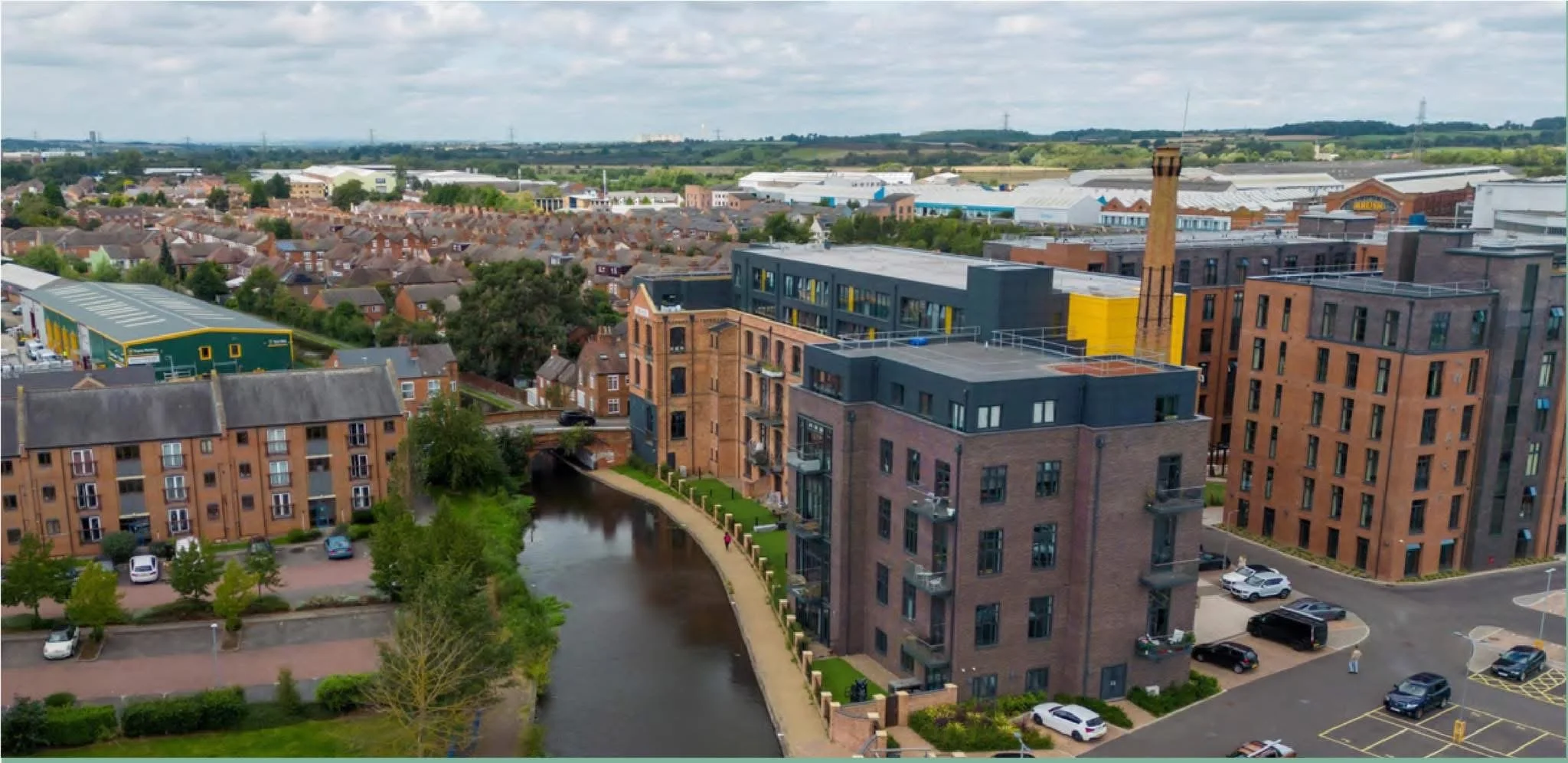Regeneration programmes only really work when places are trusted with time and power. Thirty years on from joining Leicester’s Urban Programme team, that is the thread running from City Challenge through New Deal for Communities to the Loughborough Town Deal and now the “Plan for Neighbourhoods”. When government commits for a decade and genuinely co‑creates with communities, the evidence shows deeper, more durable change; when it offers short‑term, project‑by‑project funding, we get new facilities but rarely a new story for the place.
We all know life can get busy, and sometimes it feels like we're just going through the motions. I started thinking about what really matters and how I can live a more meaningful life a long time ago but ironically it is only now that I have more time to write it down!
Last week at a networking event, someone asked me, “So, what do you do?” I smiled and said, “Nothing. I’m retired.” Cue awkward silence.
Now, I’m not retired — but I’ve reached a point where I’m more interested in meaningful conversation than job titles. That moment got me thinking: why do we ask this question? And what does it really tell us?
The Problem with “What Do You Do?”
For over two decades, many of us in Leicestershire, Leicester and Rutland have been dedicated to encouraging our communities to be more active. We've launched countless initiatives, run numerous programmes, and worked tirelessly to highlight the benefits of physical activity. But as we look at the latest figures and the persistent challenges, it's time for some deep self-reflection: are we truly making movement a fundamental, easy part of everyday life for everyone, or are we still missing the mark for too many?
Lately, I've been doing a lot of thinking – and learning – about what it really means to live a truly happy and fulfilling life. It feels like in our age of uncertainty, finding a clear purpose can feel harder than ever, and it's so easy to confuse our goals with our actual life purpose.
Britain's political landscape is currently defined by a profound and pervasive crisis of trust, with recent reports from More In Common and the National Centre for Social Research painting a stark picture of a nation disillusioned with its governance. This deep-seated mistrust, coupled with public exhaustion and a sense of governmental impotence, has led to the dramatic collapse of traditional two-party loyalties, ushering in a volatile multi-party system and an unprecedented public appetite for systemic change.
We need an open and honest debate about the evolution of Loughborough town centre and high streets across the UK., based on the current world, facts and not some nostalgia and lack of understanding of the role of the Council, and private investors.
I have never really had a traditional career or followed many of the rules I about traditional career progression. My pathway might not work for many people but I have enjoyed taking this different path.
Traditional career planning focuses on setting firm goals and following a set path. However, today's work environment changes rapidly anyway - so this makes a flexible approach more valuable for the next generation.
Local Government Reorganisation in Leicestershire: What It Means for Businesses
Leicestershire is undergoing significant changes to its local government structure following the English Devolution White Paper published on December 16, 2024. This reorganisation will impact how public services are delivered and how businesses operate within the region.
I have long been a supporter of greater devolution in the UK, I supported Labour Party policy in the 90s driven by John Prescott for Regional Assemblies. The UK is one of the most centralised economic and democratic countries in the world and it is not a good thing!
Over the years, I've written extensively about the concept of busyness—both from a personal perspective and its broader implications for society.
One of my main goals upon retirement was to reduce my busyness, and to a large extent, I have succeeded. However, I still find myself engaged in numerous activities, leading me to wonder if this is an intrinsic part of my nature. Interestingly, I also have a tendency towards laziness and self-absorption.
It seems that my tendency to stay busy is a complex interplay of my personality and the societal pressures to be involved in 'meaningful' activities.
Here I explore the concept in more depth
An important week for our regional economy, and it was god timing to share a few thoughts from my 30 years of economic regeneration journey at the Midlands Engine event in Nottingham.
I really welcome the launch of the Midlands Growth Story—an interactive tool for partners, policymakers, and investors. The Growth Story combines data, analysis, and impact stories to showcase the region’s strengths and opportunities.
My interest in measuring what truly matters in life is not new. From Aristotle to JFK's famous 1968 speech on the limitations of GDP in reflecting well-being, the quest to measure happiness has long eluded policymakers.
Personally, I have been on a journey to find purpose and happiness, knowing that true contentment can only be achieved when it is shared across society.
Last week in Copenhagen, I had the opportunity to visit The Happiness Research Institute Museum. This visit was particularly meaningful as I've been following their agenda for years and have been applying their insights to my work and those around me. My passion for physical activity policy is deeply rooted in this broader measure of well-being.
Just back from a welcome break after a hectic start to 2024. As I head to my 60th Birthday (I am still only 59.5) I am taking time to stop and reflect again on my progress towards my ‘retirement’ plans. I need to make better progress this year!
So I spent the last couple of weeks taking some family and friends away who share a similar outlook on life and the definition of success. Ironically neither of them are on Linkedin. Obviously. Each of us have tried to take a path of a balanced and purposeful life avoiding the pursuit of accumulating stuff for its own sake. The others are much better at this than I am, but I am learning from them.
I have learned that people will forget what you said,
people will forget what you did,
but people will never forget how you made them feel.
Maya Anglou
My mind works at 100% trying to link multiple agendas and getting involved in too many things. I always 8-9 books ‘on the go’ and multiple tabs open on my computer.
It is Saturday morning and after 3 hours of DiY I feel the need to write and share my thoughts. Most of my thoughts are not original but I think I can help some groups I work with understand each other better.
This is what I need to get out of my haed and onto my screen today
Whether it’s for a class presentation in school or a speech at a wedding, public speaking can be nerve-racking. You can overcome a fear of public speaking, though, with a few helpful tips and a lot of practice.
Whilst I am not the greatest public speaker - I am no Obama or Mandela, but I have created my own style and confidence to carry speak in public events over the last 30 years.
Stop. Rest. Pace
I am a long time advocate for maintaining levels of activity so when I say you should follow these guidelines I mean it. Too many sports people and fitness experts on social media and elsewhere love this idea that you can always ‘push on/ through’ You CAN’T. I have seen the consequences of ignoring your body and that’s why we fought so hard against the previous NICE guidelines and want people to understand the importance of PACE
Most importantly, people who experience post-exertional malaise or PEM — worsened symptoms after physical and cognitive exertion — should be advised to rest and pace their activity.
Unfortunately, many people with Long COVID are being encouraged to exercise and get back to work.
When pollsters ask about the top priorities for voters it is always a slight surprise to elected politicians. I have always sensed a slight gap between the policy analysis and voters feeling. They are not always on the same page. But as a politician I used to monitor them closely. Not so we we would always follow the trends, but so we could understand what people were feeling at a particular time. The numbers vary enormously from one year to the next and could depend on the ferocity of newspaper headlines even for a short time.
Health inequalities are entrenched in this country and life expectancy has been getting worse in the poorest areas. This was brutally exposed during the covid pandemic when people under 65 in the poorest parts of the country were four times more likely to die. Now, as we face the cost of living crisis and the NHS faces increased pressures, we risk things becoming worse still.





















